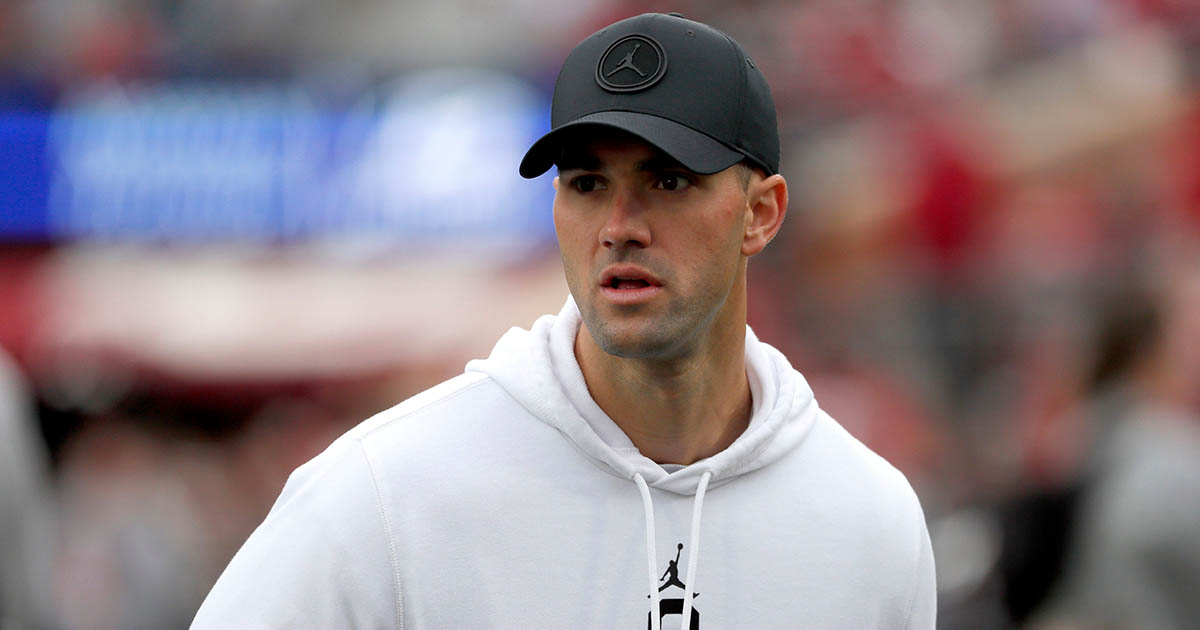For one thing, EA appear to have hit a sweet spot with the pace of gameplay this year, with matches flowing smoothly and, crucially, the speed of the players feeling appropriate when compared to their real-life counterparts. Not every attacker can leave a bedraggled defender in their wake this year, but certain stars such as Kylian Mbappe can – which is just as it should be. Inconsistent pacing has been one of my major criticisms of FIFA over the past couple of years, so it’s a very welcome sight to see this evened out this year.
“
When simply gliding past opponents isn’t the answer, though, becoming a pass master will be key. Fortunately, that won’t take too long to achieve, as passing your way up the pitch seems as simple as ever. Almost too simple, as you create triangles of play towards the opposition box until a sight at goal appears. It seems too easy at times to create openings with killer balls being played with ease all too often and needing little skill or vision to pull off. This, combined with significantly improved positional intelligence from AI attackers and ability to now tell them where you’d like them to make a run with the flick of the right stick, leads to many, many opportunities to score over the course of 90 minutes.More often than not, these opportunities will turn into goals, largely due to the woeful goalkeeping on display. Goalkeepers rarely hold onto a ball from crosses and corners and tend to punch and flap at the ball 99 times out of 100, with even some of the world’s best shot stoppers seemingly suffering from fever dreams where their hands melt in front of their eyes when a ball enters their vicinity. Then there’s the rebounds from shots that you’d like to think a world-class keeper like Alisson could catch with ease, which usually just deflect into a waiting attacker’s path to be slotted home. Maybe I’m just cursed with bad luck, but this tends to happen far too often to purely be the work of the football gods.
“
One contributing factor towards this may be that while the attacking AI may have improved positionally, the same can’t be said as much for defenders. While they seem to come to life around the edge of the box when a shot comes in (I’ve seen a noticeable increase in the amount of players realistically flinging their bodies towards to shots in order to block) they seem over reliant on the player moving each into position, which can be unforgiving at times. I enjoy defending, but I’m not sure FIFA 21 is a game made for players like me, with clean sheets coming at a premium.
That’s not to say I haven’t been enjoying it; the new collision system makes for more robust challenges and slide tackles actually result in you gaining possession regularly, rather than the ball ricocheting off to far reaches of the pitch. Making a bold defensive move offers a high risk factor, perhaps as it should, but I just wish I had a little more assistance from the players I can’t control at times. For example, if I want to bring a defender out to close down an attacker I’d like my centre-back partner to come round and cover if he manages to beat me one on one. This rarely happens though and forwards get clean in on goal all too easily.One area that has seen nothing but improvement, though, is crossing – and heading in particular. Gone are the headed shots of FIFA 20 that darted into the stands off of players’ seemingly cubic foreheads. Whipping in a ball from out wide onto a forward now feels like a genuine goal-scoring tactic rather than the low-odds lottery it has done in previous seasons. It’s enjoyable to create a variety of goal-scoring opportunities over the course of a match and not just slipping through-balls to pacey attackers constantly, even if the goalkeeper will ultimately have no answers to any of these questions posed at him.
Volta, Career and FUT
Tweaks have also been made off the pitch with changes to FIFA’s many modes. There’s no huge additions this year like the introduction of Volta in FIFA 20, but there have been adjustments to each that add a little extra punch. Volta, for example, comes with The Debut, a short two to three-hour single-player mode that serves as a re-introduction to the street side of football. To call it a story mode would be glorifying it a bit as it offers very little in terms of engaging story, but serves as a way to display the five new arena locations.
“
You’ll play matches against icons everywhere from Sao Paulo to Sydney as well as take on legends in skill challenges. On one particular occasion you’ll take on, and defeat, Kaka (one of the most explosive carriers of a football I’ve ever seen) in a dribbling competition. It’s very cheesy but does serve its purpose of giving you a reason to get back into Volta. Another addition to Volta is the option to now play online cooperatively with friends, something that was bafflingly missing from FIFA 20. All in all, though, Volta is very much like it was last year, and considering it’s a mode I didn’t feel the need to play heavily last year outside of my first week, I can’t see it taking time away from FIFA’s other modes for me this year either.However, some of those modes aren’t doing a great job in competing for attention either. Things looked promising when EA teased big changes would be coming to the Career mode in FIFA 21, but sadly, it’s not quite the full facelift that I had been hoping for. Some fun new additions have been made but not enough to bring what used to be the games flagship mode back to its full glory.
The interactive match sim option is probably the most impressive of all the features, even if a similar concept has existed in Madden for a good few years now. The ability to watch the game develop from a birdseye 2D viewpoint fills me, a Football Manager veteran, with nostalgia and serves as a great way to progress quickly through seasons and those cold, rainy nights in Stoke. It’s noteable how quickly you can transition from this viewpoint to taking control of your players if the match isn’t going quite how you planned – that process is near-seamless and genuinely impressive.
“
Further borrowing from the Football Manager series are new training and player development systems. Being able to perform training sessions with your players to improve their match sharpness is a fun idea at first, but one I quickly grew tired of. Playing these glorified tutorial sections in order to gain a negligible amount of stat increases didn’t do a lot for me and I quickly found myself simulating them at every opportunity instead.Meanwhile, the new player development options allow for more variety and are the closest Career mode comes to actually putting you in a head coach’s shoes. I played around with these systems and was pleasantly surprised with the positive outcomes that can be achieved. For example, when playing as Tottenham I changed Eric Dier’s position from CDM to CB, a move that took him only two weeks to process and changed his overall rating from 78 to 82. I’m a big fan of this system and can’t wait to put it into practice more, whether that be making interesting changes like molding Trent Alexander-Arnold into the midfield playmaker he could be or going all-out bonkers with it and turning Neymar into a tough ball-winning centre-back. Ok, maybe that’s going a bit too far. But you can do terrible things like that if you want, and that’s cool.
“
Despite these fun few changes to Career mode, though, most elements are still fairly largely stagnant. The same UI and presentation still exist, along with the drawn-out transfer negotiation scenes being played out by lifeless, Madame Tussaud versions of players and managers. It’s a step in the right direction, but not a big enough one to satisfy my wishes for what Career mode could be.
It’s clear that Career mode isn’t EA’s focus though, and why would it be when Ultimate Team brings in the player base and revenue that it does? FUT is a beast in its own right and has also received a few tweaks this year without rewriting the playbook. These include quality-of-life upgrades, such as the long-awaited removal of fitness cards to the ability to now fully customise your stadium with sights and sounds of your own choosing. I’m a big fan of the latter, which should hopefully further help each club feel different from one another.
There’s also the introduction of FUT co-op, which allows you to experience both Division Rivals and Squad Battles together and share in the joy of eagerly opening a pack to see a 77-rated Ashley Barnes card staring back at you. Admittedly I’ve fallen off of Ultimate Team in recent years, but my favourite way to play FIFA is teaming up with friends in co-op seasons or Pro Clubs so this new addition to FUT could be what gets me back involved. Speaking of Pro Clubs, there’s now the ability to fully customise your squad of players. That’s a small, but much-appreciated feature that I can’t wait to get stuck into.







